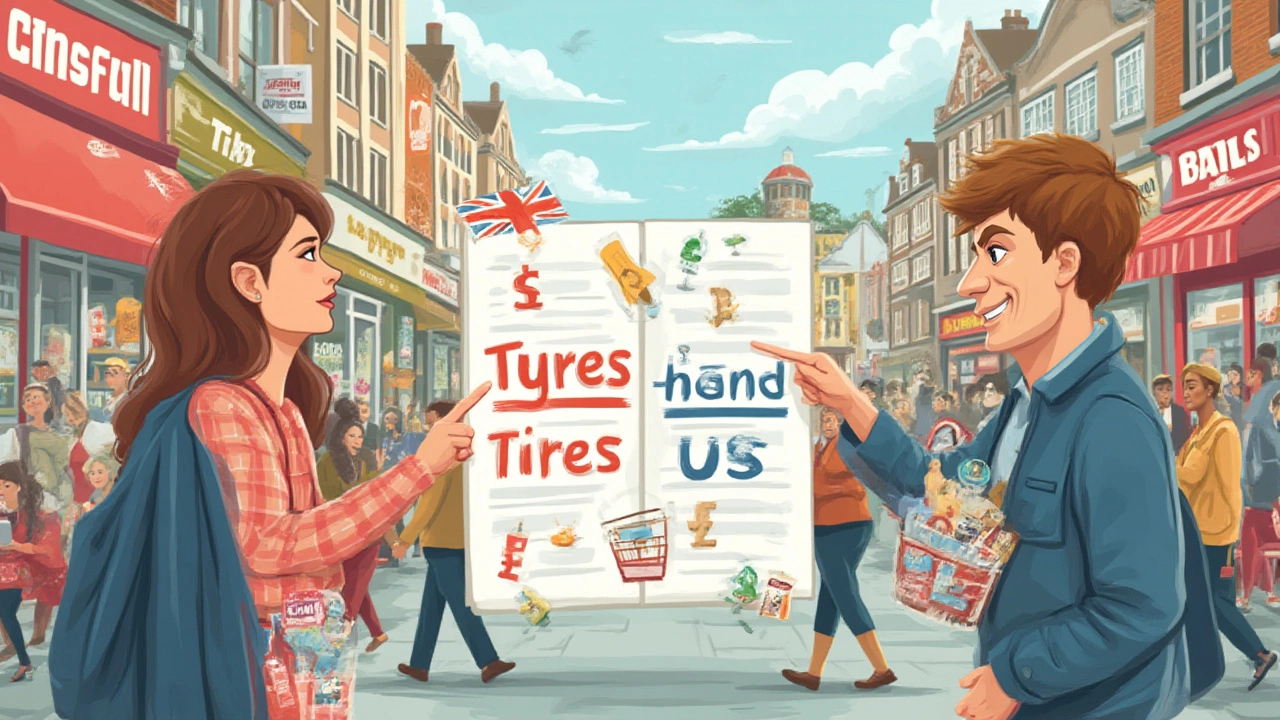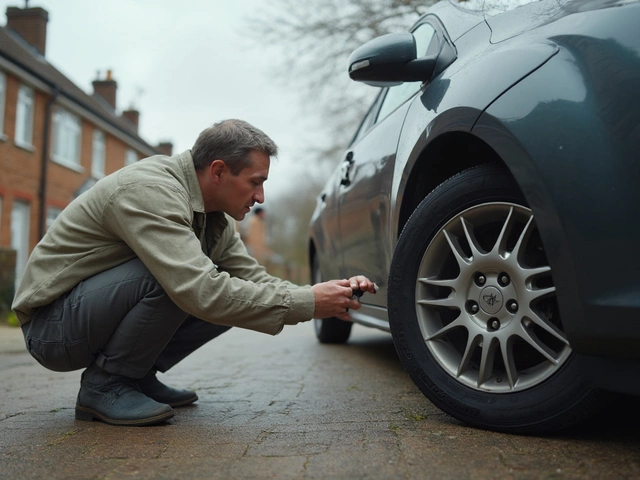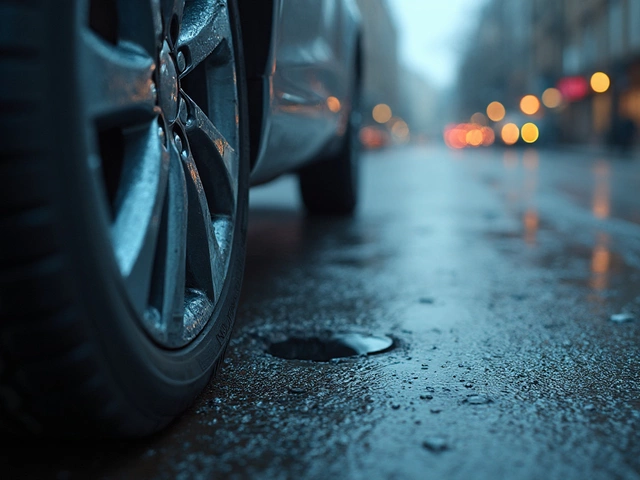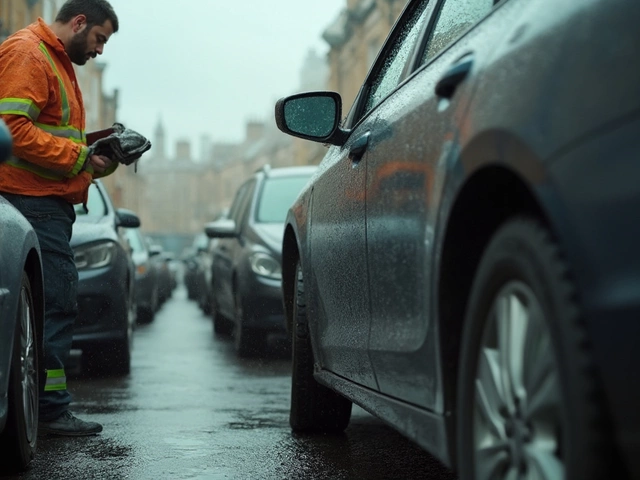You walk into an auto shop in London and see 'tyres' painted on a big sign. But stroll into a shop in New York, and it’s all about 'tires.' Both words shout the same thing—those rubber rings gripping your car to the road. So, is one right, and the other wrong? Or is it just another English language quirk forcing us to pick sides? Spoiler: It’s both, and knowing the difference makes a real impact, especially if you ever order car parts online or hop between continents. Before you trash your search results or send a confused email, here’s how the story shakes out—and what you really need to know.
Why Are There Two Spellings: The British and American Divide
The ‘tyre’ vs. ‘tire’ divide is like the English language’s version of football vs. soccer. Except both refer to the same round, black thing on your wheel. The split all goes back to the 19th century. British English uses ‘tyre’, rooted in the French word ‘tirer’ and a habit of adding ‘y’ to words for class and clarity. The spelling ‘tire’ hung on in America, aligning itself with the older sense from the 15th century meaning the ‘attire’ or dress of a wheel. Noah Webster, the American dictionary maverick, pretty much stamped ‘tire’ into US spelling books for good around 1828.
You’ll find ‘tyre’ everywhere in the UK, Australia, New Zealand, South Africa, and most countries tied to British English. ‘Tire’ lives strong in the US and Canada. The difference isn’t about who invented the rubber ring—John Boyd Dunlop’s 1888 patent called them ‘tyres’ in Belfast—and it’s not an indicator of formality or casual talk. It’s a pure culture stamp: British? ‘Tyre.’ American? ‘Tire.’
But mix-ups happen all the time. According to Google Trends, searches for ‘tires’ are about three times higher worldwide than for ‘tyres,’ thanks largely to American web traffic. Even in places like India, ‘tyres’ holds firm in newspapers and on car repair shops. Grab any magazine in New York? It’s ‘tire’ everywhere—from NASCAR guides to knobby mountain bike ads. Now, check the owner’s manual in a Singapore cab, and you’ll probably see ‘tyres’ printed on the maintenance schedule.
Here’s something wild—some UK automakers that export cars will redesign the spelling for the US market. You might spot a label reading ‘TIRE PRESSURE’ on a dashboard from an imported Mini, but in Britain, it would always say ‘TYRE PRESSURE.’ Even Formula 1 broadcasts change their graphics depending on where the race is held. The difference sticks, right down to spelling—and if you ever import a car or bike, watch the spelling on your parts catalog.
Some folks argue ‘tyre’ applies only to vehicle wheels, while ‘tire’ can mean 'to become tired.' That’s true, but confusing things even more is that American English uses ‘tire’ for both. So, if you ask for ‘new tires’ in Los Angeles or Detroit, you’ll get what you want. But ask for ‘tires’ at a British repair place, and the answer will be a knowing nod—they get it, but it might sound off, kind of like ordering ‘chips’ and getting crisps.
Check out this side-by-side for quick reference:
| Location | Spelling | Example |
|---|---|---|
| UK & Commonwealth | tyre | Goodyear tyres, tyre shop |
| US & Canada | tire | Goodyear tires, tire center |

How the Tyre/Tire Split Shows Up in Real Life
Imagine you’re planning a road trip across Europe and you’re looking for a new set of wheels. If you Google ‘best summer tires’ from your London hotel room, you might get a list of American brands, with sizes in inches and only reviews from Minnesota. But swap your search to ‘best summer tyres’ and you’ll unlock a wave of local recommendations, metric sizing, and advice that actually works in the rainy UK climate.
Ordering auto parts online? Here’s where it gets tricky. Typing ‘tires’ into Amazon.co.uk or eBay in the UK might pull up American imports, which could be the wrong size or spec. Flip it to ‘tyres’ and you’ll find the brands and sizes made for your car, plus people who understand British road rules. Car forums split too. UK drivers chat about ‘tyres’ on PistonHeads, while die-hard American gearheads on Reddit’s r/cars stick to ‘tires.’
The spelling gets critical when you book an MOT or annual car inspection. British paperwork and mechanics all use ‘tyre tread depth’ as a legal term. If you discuss a worn ‘tire’ with them, no one’s going to get grumpy, but you’ll sound like you learned your English in New Jersey. In global motorsports, like Formula 1, commentators will switch between both—Sky Sports UK always goes with ‘tyre degradation,’ while ESPN uses ‘tire wear.’
Even advertisers play the split. Michelin, one of the world’s biggest tyre makers, spells it ‘tires’ in US commercials and ‘tyres’ in UK print ads. Their own website recognizes location and changes spelling based on your IP address. Retailers with both spellings in their ads can grab more web traffic and customers—clever move if you’re doing business on both sides of the Atlantic.
Ever heard of ‘retreaded tyres’? In Europe, environmentally conscious drivers often buy retreaded tyres to save money and help the planet. But type ‘retreaded tires’ into a US search engine and you’re more likely to see truck freight companies or industrial suppliers. Even the way you phrase insurance claims, used car ads, or product reviews will shift—so matching the spelling isn’t just about being fussy. It’s about getting the right service, understanding instructions, and fitting into the culture.
The divide also runs into legal requirements. UK law regulates ‘tyre tread depth’—the minimum is 1.6 mm for passenger cars, checked across the central three-quarters of the tyre. US federal rules require at least 2/32 inch of tread—slightly less. If you write the wrong spelling on a form, nobody will fine you. But use the local one, and you’ll blend in like a native.

Quick Facts and Tips: Never Get Caught With the Wrong Spelling Again
Feel out of place at the tire shop when you travel? Here are a few tricks to sort life out:
- If you’re in the UK, Australia, or India—stick to ‘tyre’ in all your correspondence, online searches, and shop signs.
- For the US and Canada, use ‘tire.’ That’s how legal documents, car manuals, and merchants spell it.
- When writing for an international audience—a blog, or a global e-commerce site—use both: ‘tyres (UK) / tires (US)’ or pick the version most relevant to your target country.
- Many car rental booking sites match local spelling based on where you’re browsing from. If you don’t see what you expect, try switching the word in the search bar—the offers may instantly get more relevant.
- Ordering parts or accessories? Double-check spelling, as products listed as ‘tyres’ may not even come up if you search for ‘tires’—and vice versa.
- Big auto brands have separate country websites that let you pick spelling right from the homepage or landing page.
- Traveling with kids? In American English, tire can also mean 'to become tired.' You’ll never see ‘tyre’ used this way, so don’t get tripped up by spelling in children’s books or playlists.
Here’s a table comparing common car-related spellings between British and American English, so you’ll never get your wires—or, uh, treads—crossed:
| British (UK) | American (US) |
|---|---|
| tyre | tire |
| bonnet | hood |
| boot (of car) | trunk |
| windscreen | windshield |
| petrol | gasoline/gas |
| number plate | license plate |
Not sure which spelling to use outside the car world? If it rolls on a wheel, ‘tyre’ in the UK/Commonwealth and ‘tire’ in the US/Canada. If you mean feeling sleepy or exhausted—it’s always ‘tired’ with an ‘i,’ everywhere on Earth.
It's kind of amazing how one little letter splits the world when it comes to cars. But nail the spelling where you are, and you’ll look way more informed. Now, next time you grab a rental or snap a photo outside a shop, take a second look at those signs. Catching the right spelling is a small but smart move—it’s almost as satisfying as getting a brand-new set of tyres… or tires, wherever you’re headed next.


